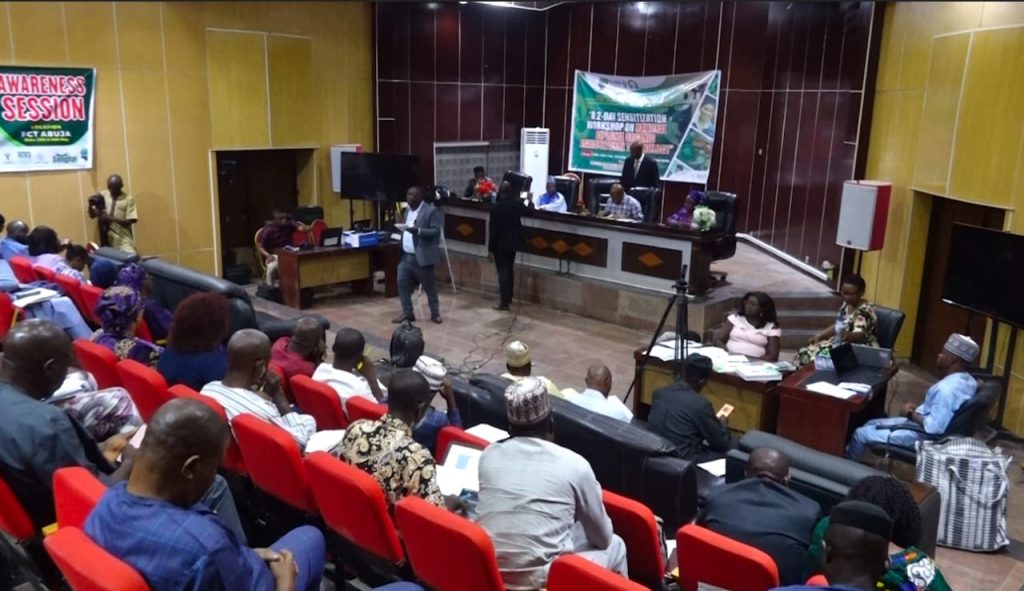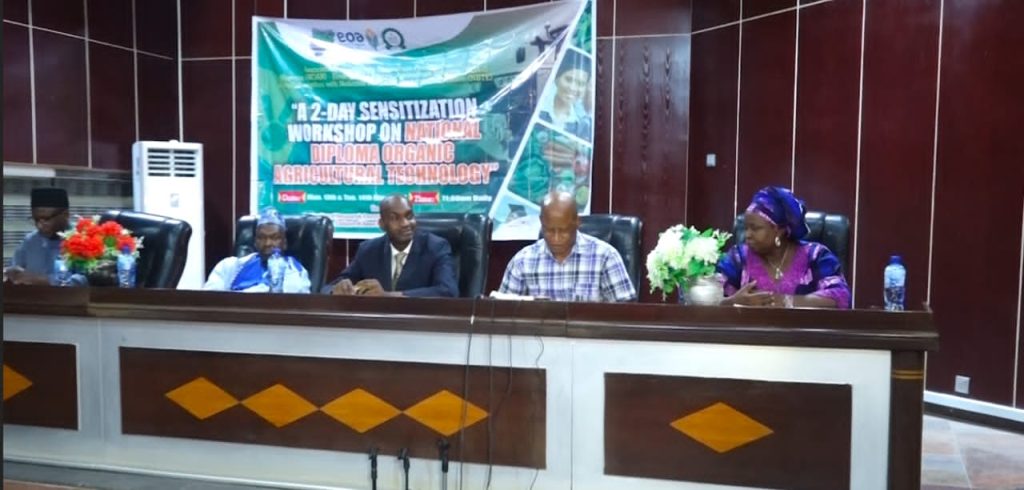By Safia Abdulrahman
Mr Oyewole Gbadamosi, Coordinator, EOA initiative, West Africa say the introduction of Organic Agricultural Technology in higher institutions will encourage food security in the country.
Gbadamosi said this at the public presentation of the Curriculum for National Diploma, Organic Agricultural Technology two-day sensitisation workshop on Monday in Abuja.
Gfhnews reports that the curriculum for Colleges of Agriculture and Polytechnics was developed by the National Board for Technical Education (NBTE) in collaboration with Association of Organic Agriculture Practitioners of Nigeria (NOAN) and Ecological Organic Agriculture (EOA) Initiatives in Nigeria.
He said that although there are misconceptions about organic agriculture, the study of organic agricultural technology will address the misconceptions.

“Organic agriculture is a system which has all the components of ecosystem working together that will sustain the health of individuals, communities, soil, plants and animals.
“There are a lot of misconceptions about organic agriculture and some people equate it to the use of organic fertilizers.
“However, organic agriculture encourages crop productions that allows no synthetic agrochemicals but allows practices that work in tandem with nature,’’ he added.
Gbadamosi said that farmers and processors needed training and development to adopt organic practices and improve their productivity.
The National president, Association of Organic Agriculture Practitioners of Nigeria (NOAN), Dr Jude Obi, said the struggle of the association to bring organic agriculture into mainstream agriculture in Nigeria had been a torturous journey.
“We have developed a curriculum for teaching organic agriculture and getting a National Diploma degree through the support of the National Board for Technical Education (NBTE).
“Organic agriculture can feed us if everybody tries to produce minimally what he or she consumes, this is why the association is in the forefront of this.

“We hope that the Colleges of Agriculture and Polytechnics will processors this curriculum and follow it up,” he said.
Obi said the association was also raising awareness on participatory guarantee scheme for organic agriculture.
“We plead with those that want to implement this to register as members of the association so that we can work together to achieve this”, he said.
The NBTE Executive Secretary, Professor Idris Bugaje who was represented at the occasion by Dr. Rufai Ibrahim, said the board has taken time and resources to come up with the curriculum and that institutions have been granted approvals to commence the implementation of the curriculum.
He added that the curriculum is tailored toward encouraging the adoption of organic farming.
He assured that the board will see to it that the Higher Diploma level commences in a few years to come.
The chairperson, Ecological Organic Agriculture (EOA), and Deputy Director, Farm Input Support Services, Federal Ministry of Agriculture and Food Security, Mrs Igoh Janet, said the curriculum is the best that could be introduced at this time, as studying Organic Agriculture would create more jobs.
According to her, the holistic study of the course in any of the institutions will give opportunities to youths to work as farm managers.
She called on graduates who are still seeking for jobs to take advantage of the course to embrace organic farming.
Delegates at the workshop, however, called on institutions to introduce short time certificate courses on organic agriculture as this would encourage graduates and other farmers who may want to learn more about organic farmers to enroll.






